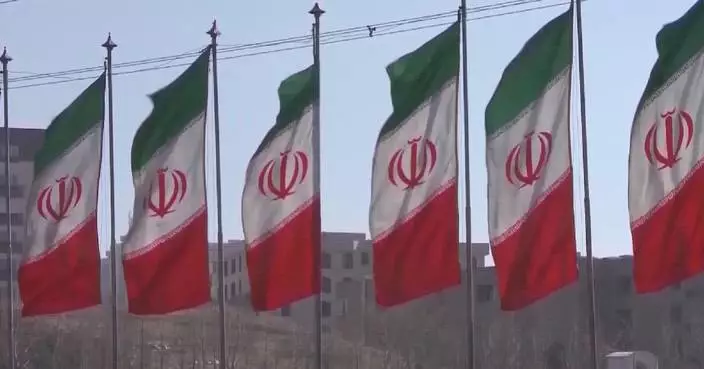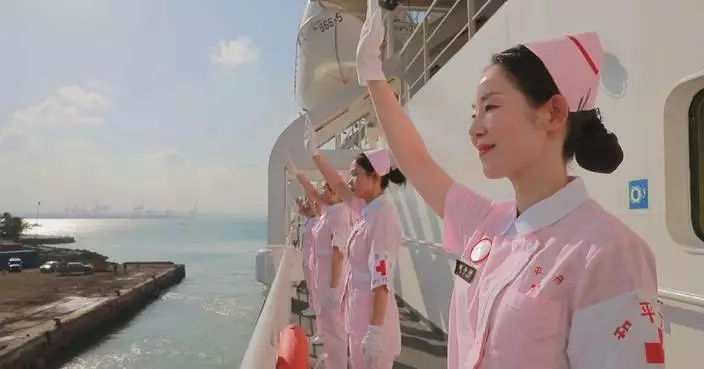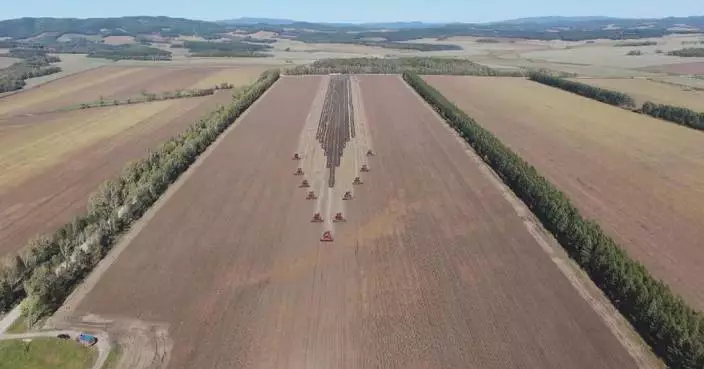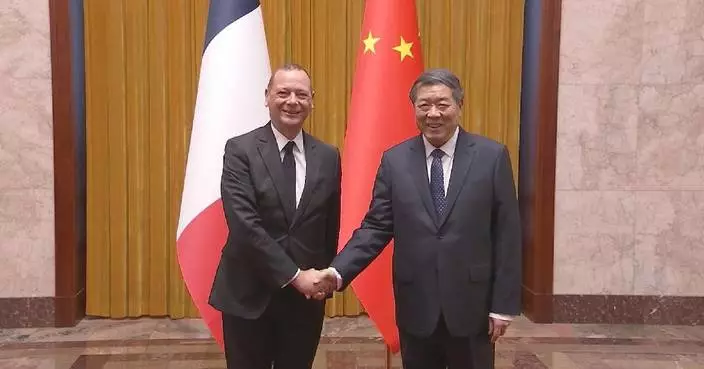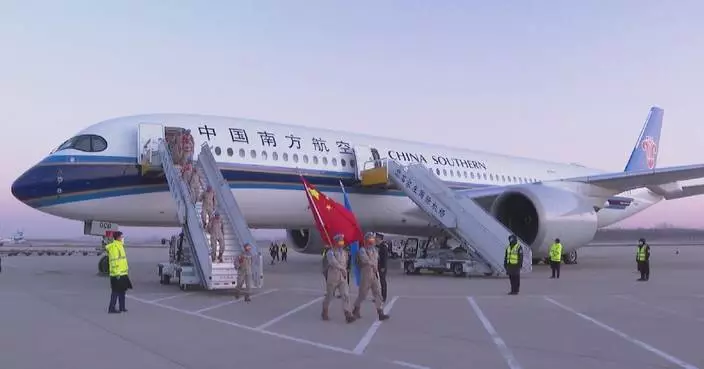Two giant pandas departed from southwest China's Sichuan Province for Australia on Saturday afternoon, marking a new round of China-Australia collaboration on giant panda conservation and research. Xing Qiu, a four-year-old male born in September 2020, is lively and active. He was so named because he was born at an autumn night when the sky was full of twinkling stars.
Yi Lan, a three-year-old female born in August 2021, is quiet and elegant. Her name means gentleness, elegance and nobility in Chinese culture.
Both of the cuties are from the Dujiangyan base of the China Conservation and Research Center for the Giant Panda, and set to settle at Adelaide Zoo for the next decade.
Fresh bamboo, bamboo shoots, fruits, vegetables, specially made steamed buns, and drinking water were carefully prepared to ensure their health and safety during the flight. Experienced keepers and veterinary experts from China and Australia are accompanying the pandas on their journey.
The two giant pandas arrived in Adelaide at 6:02 local time on Sunday.
Upon arrival at Adelaide Zoo, Xing Qiu and Yi Lan will undergo quarantine. Chinese experts traveling with them will stay temporarily to help the pandas adjust to their new environment.
Adelaide Zoo has upgraded its facilities to welcome the new arrivals, ensuring an ample supply of food and assigning an experienced care and research team to manage the pandas.
The zoo, Australia's second-oldest, is home to over 200 species of exotic and native mammals, birds, reptiles and fish. In 2009, two other pandas, Wang Wang and Fu Ni, began their stay at the zoo, drawing more than five million visitors. The pair returned to China in November this year.
Building on the success of past cooperation, the new partnership will further advance collaboration in areas such as breeding research, disease prevention, public education and cultural exchange. This initiative aims to strengthen research efforts and foster closer people-to-people ties between China and Australia.
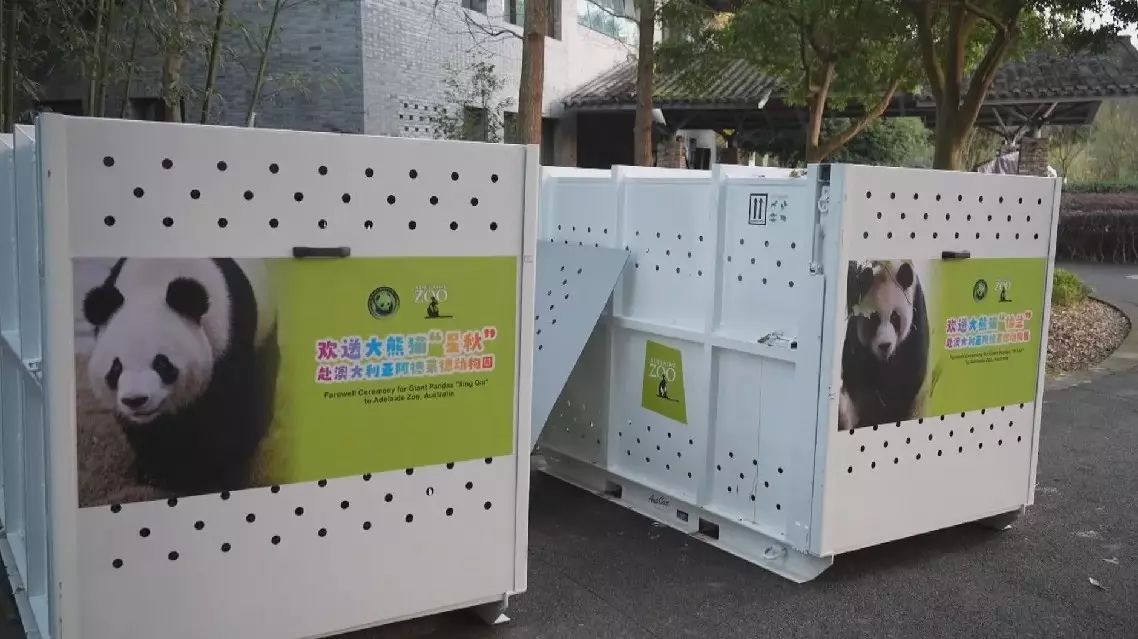
Two giant pandas depart China for Australia
As Macao celebrates the 25th anniversary of its return to the motherland, a group of ambitious young entrepreneurs is riding the wave of the region's deeper integration into national development, venturing into the vibrant mainland city of Zhuhai to pursue their career dreams.
Zheng Yiwei, a native of Macao, commutes daily between Macao and Hengqin, a special area at the southern tip of Zhuhai, Guangdong Province in south China.
For years, Macao's limited development space posed significant challenges for its residents. However, with the central government's support, Hengqin, a place just across the water and three times the size of Macao, has opened new ground for growth.
"It takes just about 10 minutes from here (Macao) to Hengqin," said Zheng as he drove toward the mainland city.
Over the past few years, the establishment of the Guangdong-Hong Kong-Macao Greater Bay Area (GBA) and the launch of the Guangdong-Macao In-depth Cooperation Zone in Hengqing have paved the way for better transport connectivity and greater alignment of institutional frameworks between Macao and the mainland, unlocking fresh opportunities for aspiring young people like Zheng.
In 2019, encouraged by the release of the GBA Outline Development Plan, Zheng founded AHA, a youth incubator in Hengqin aimed at inspiring "aha" moments of creativity for young entrepreneurs from Macao and Hong Kong.
"I think [we] benefit most from this era, as Macao is part of the 'one country, two systems' framework, allowing us to use Macao's platform to connect with Hengqin's space and international resources," Zheng explained.
Zheng's incubator has supported more and more Macao entrepreneurs in establishing themselves in Hengqin. Among them is Cai Deming, a filmmaker who has cooperated with mainland teams to produce a short film in June reflecting everyday life in Macao.
"Working with mainland teams creates a complementary synergy. By gradually integrating into the GBA and with the support of the central government, everyone in our team can freely chase their dreams and fly high together," said Cai.
Meanwhile, businesspeople from Macao are embracing the opportunities created by more convenient cross-border travel and streamlined administrative services to build their careers in Hengqin. For restaurateur Chen Yan, Hengqin has even become home.
"The supportive policies and resources for opening businesses help solve many problems. We're still gradually developing, but I hope to carve out a place in Hengqin's blossoming catering industry," Chen said.
As of October 2024, over 6,500 Macao-invested enterprises had set up operations in Hengqin. In the first half of the year, the added value of these enterprises was close to nearly 1.9 billion yuan (about 260 million U.S. dollars), making Hengqin the mainland's most concentrated area for Macao-invested businesses.
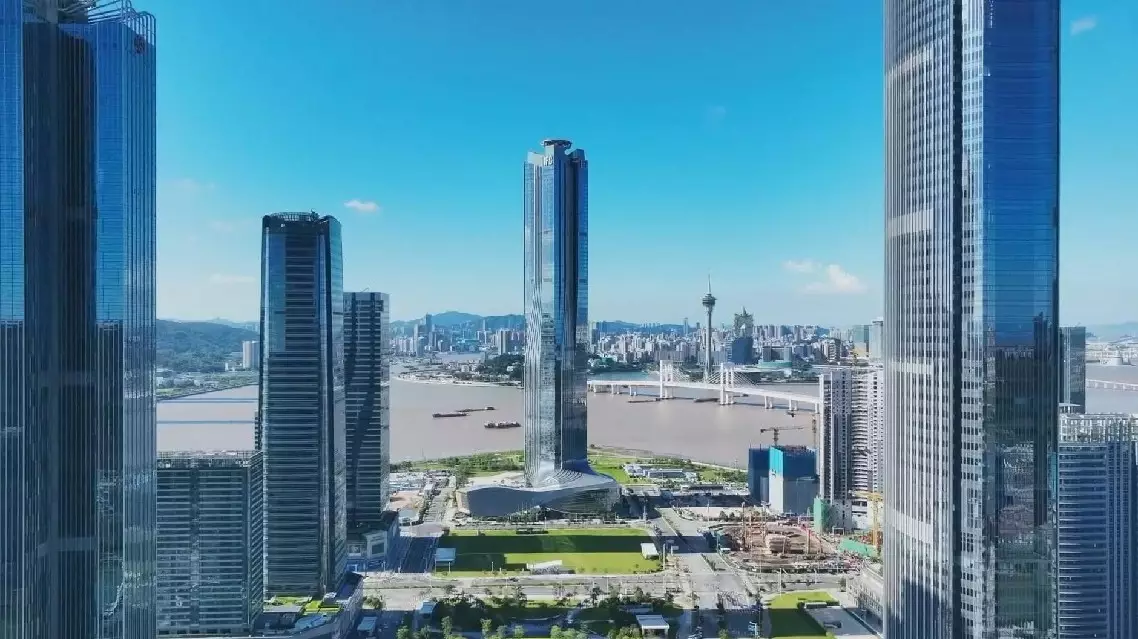
Young Macao entrepreneurs chase career dreams in Hengqin amid growing regional integration




